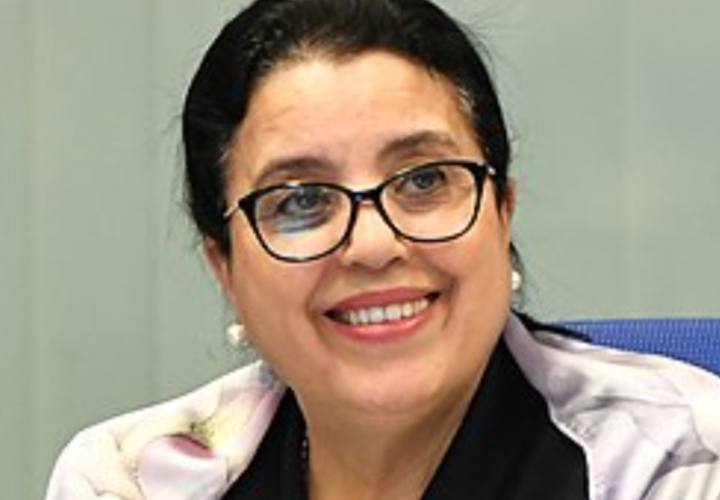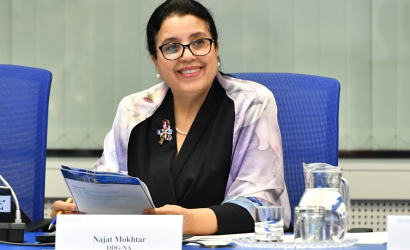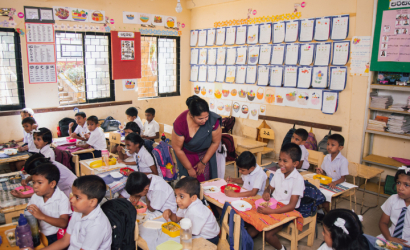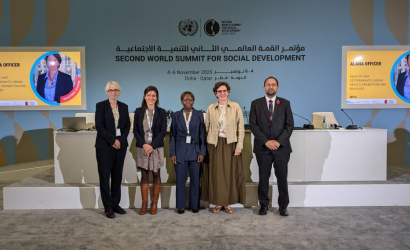Nutrition may not necessarily be the first thing that comes to mind when one thinks of the International Atomic Energy Agency (IAEA), yet in many ways, it is at the frontier of nutrition assessment. Thanks to its research and support on nuclear techniques, Member States and the nutrition community are gaining a better understanding of the interplay between nutrition and human health. Some of the areas it explores include breastfeeding, body composition, energy expenditure and nutrient uptake.
In November 2023, Dr Najat Mokhtar from IAEA was officially named as the UN-Nutrition Chair. She supersedes Máximo Torero Cullen, Chief Economist at the Food and Agriculture Organization of the United Nations, who was serving as the ad interim chair. Dr Mokhtar is neither new to nutrition, nor to senior leadership roles within the UN. At present, she is also the IAEA Deputy Director General and Head of the Department of Nuclear Sciences and Applications. Her early days working at the country level in Morocco shaped her carrier and taught her the importance of coordination and partnership. In this interview, she shares insights about her background and gives us a taste of how she plans to lead the ship amidst today’s unsteady waters.
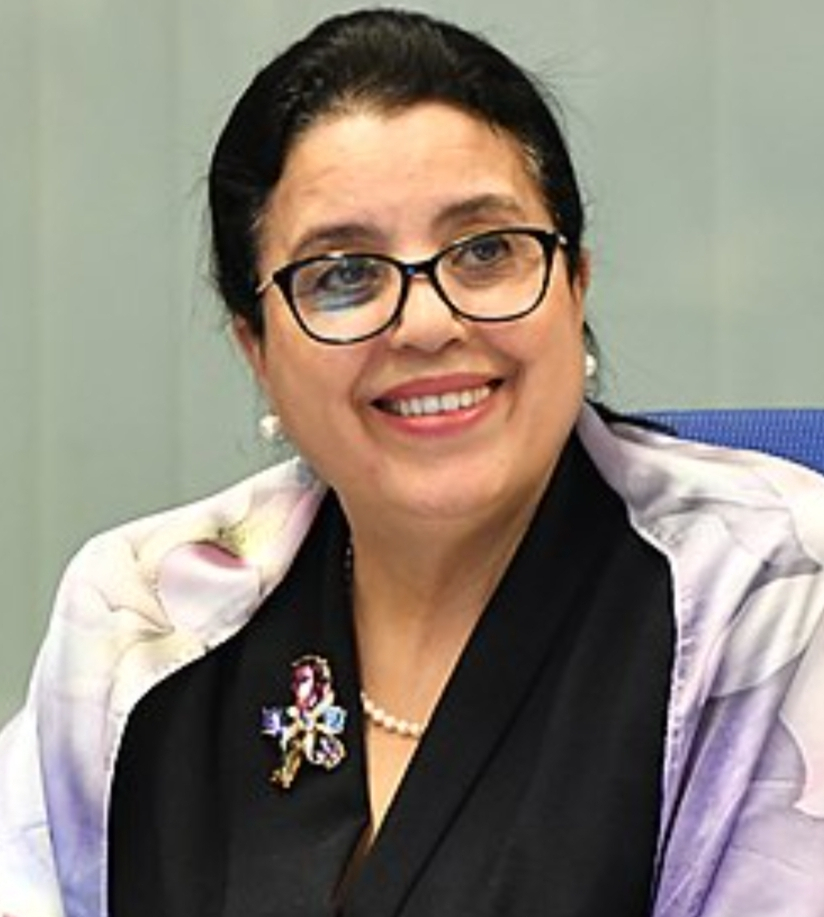
Q1: Tell us a bit about yourself, particularly your previous nutrition experience and how you have worked to elevate nutrition on the international development agenda in your senior leadership roles at IAEA.
Dr Mokhtar: I have been working in nutrition and public health for more than 25 years, starting with my doctorate and PhD studies in food and nutrition and nutrition and endocrinology, respectively. I have contributed in nutrition and public health in Morocco through the establishment of a 10-year national strategy to promote nutrition and through providing data on micronutrient deficiencies in Morocco, including vitamin A and iron. At IAEA, I have led a great team of nutritionists, and together, we have helped countries in using nuclear and isotopic techniques to evaluate and monitor their nutrition programs – for example, programmes to promote exclusive breastfeeding and [good] infant and young child nutrition, and also programs to prevent and manage obesity.
Q2: What excites you most about chairing UN-Nutrition?
Dr Mokhtar: Coordination is the only way we can deliver sustainable nutrition outcomes.
It’s an honor to chair UN-Nutrition, to coordinate and facilitate the dialogue among the UN agencies on joint approaches in addressing nutrition challenges. This is particularly exciting when nutrition is associated with strengthening food systems, improving health and tackling the impact of climate change. Coordination can contribute significantly to improved nutrition outcomes as it promotes complementarity and overcomes duplication, leading to higher and more sustainable impacts.
Q3: Looking ahead to the 2024–2025 biennium, what 2-3 factors do you believe will be critical for the success of UN-Nutrition against the backdrop of today’s interlocking crises?
Dr Mokhtar:
- To rally and coordinate the work of UN agencies to accelerate joint work on global nutrition targets
- To coordinate the work of UN agencies to support and enhance healthy diets from sustainable and resilient food systems, especially around joint advocacy and communication
- To strengthen linkages between national, regional and global efforts and further clarify and define UN-Nutrition’s role and support mechanisms at the country level
Q4: You have held country-, regional- and global-level positions. What suggestions do you have for strengthening feedback loops across the country-global continuum in pursuit of UN-Nutrition’s two interconnected goals and mission?
Dr Mokhtar: I think we should first enhance the dialogue with the regional offices. Regional nutrition officers have a good overview of what is going on at country level. They can bring insights to the global level and vice versa can bring discussions at the global level back to the country/regional level. Another suggestion is to strengthen feedback mechanisms from the country level through regular monitoring – for example, [through] small surveys. In addition, I think the type of regional webinars that were organized recently by the secretariat should be continued as a regular forum for exchange across all levels.
Q5: What are some of the top challenges that UN-Nutrition faces today? How do you think they can be overcome?
Dr Mokhtar: I think the top challenge is to enhance clarity on the role, working methods and tools of UN-Nutrition at the country level and on how to contribute best to an enabling environment for UN coordination. Another challenge is to sustain the secretariat and to implement the workplan of UN-Nutrition. Continued dialogue and enhanced coordination between the UN agencies as well as support for resource mobilization activities for nutrition will be essential to overcome these challenges.
